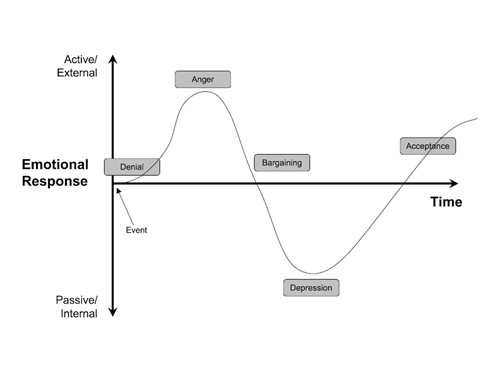You are the same, the role is different. Times too
Stepping up to management is always a challenge, but especially during COVID-19. I was appointed Library Manager at Bradford District Care NHS FT in June 2020. This is my personal experience transitioning from librarian to manager.
There are two elements that helped me navigate this new role.
Anchor to your values
This means that before mimicking the moves of seasoned manager, I spent time recognising which values ground me on earth (apart from gravity!). This is an important and challenging task because no one can tell you what your own values are.
Luckily I quickly recognised that my values were aligned to my trust and new management, which made the entire transition easier. If you’re curious to know my values, these are: listening, be curious, collaborate and never be afraid to fail.
Saying goodbye, acceptance, new beginnings
One aspect of my role I recently reflected on is the fact that transition into a manager role does not only involve myself. The fact was that with my arrival, on the top of the first lockdown, the previous established balance in the team was disrupted.
As a keen gardener I am well aware of the principle of interconnectedness (in plain words, nothing in nature exists in isolation). For this reason, as soon as I started my role I shifted my attention to the environment around me.
Despite my enthusiasm for starting a new working chapter and embarking on new projects straight away, I was determined to take time and understand what my team was feeling. Because of the lockdown I started setting up regular team meetings and 1:1s to introduce myself to the team and learn about roles and activities. It’s so tempting to immediately impose new processes and ideas, but instead I wanted to observe and learn about the unique person behind each role.
My decision to invest time getting to know my team was based on a past experience where I took for granted that everyone would get on with the internal promotion. At that time I had been solely focused on getting on with the new job and proving to my managers that they made the right decision. What I failed to do was to recognise that not all of the team were on the same page.
Maybe it’s because I moved into a mental health trust and psychological processes are our cup of tea but in this role, I better understand the stages that form the change model.
Are you familiar with the Kubler Ross Model?

Imagine you spent the last 10 years happily with your manager, you built a strong relationship, and you know you’re well regarded. In few months the Covid-19 pandemic kicks in, working from home disrupts your private and working life, maybe you’re going through some personal challenges and cherry on top a new manager comes in. As a team member you’ll have to build a new relationship with the manager again. Chances are that the new manager will not be able to replicate exactly the past relationship you had with the previous manager. This is where a little bit of empathy is needed.
After a while I openly addressed the Change Model at a team meeting. I asked the team to look at the model and identify where they felt they were. I assured them that it didn’t matter where they were, and that I was there to help them move towards a new beginning. What’s best is that the model frees people from feeling guilty about certain emotions toward change. The new beginning stage is just few steps away.
Just one note: while the model can be utilised to support understanding of some reactions to change, it is not a certified blueprint. So keep using your critical thinking!
What’s next?
With this issue we celebrate David’s retirement and achievements but it’s also important to start thinking how the group will move forward after his departure.
I am personally nurturing two powerful elements that belong to David’s legacy:
• collaborations make us stronger
• the transformative power of tiny changes.
Finally I want to thank the editorial team for having asked me to write this short piece.
Federica Bianchini
Library & Information Resources Manager
Bradford District Care NHS FT

